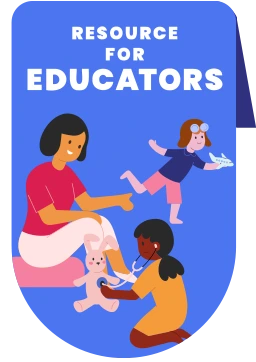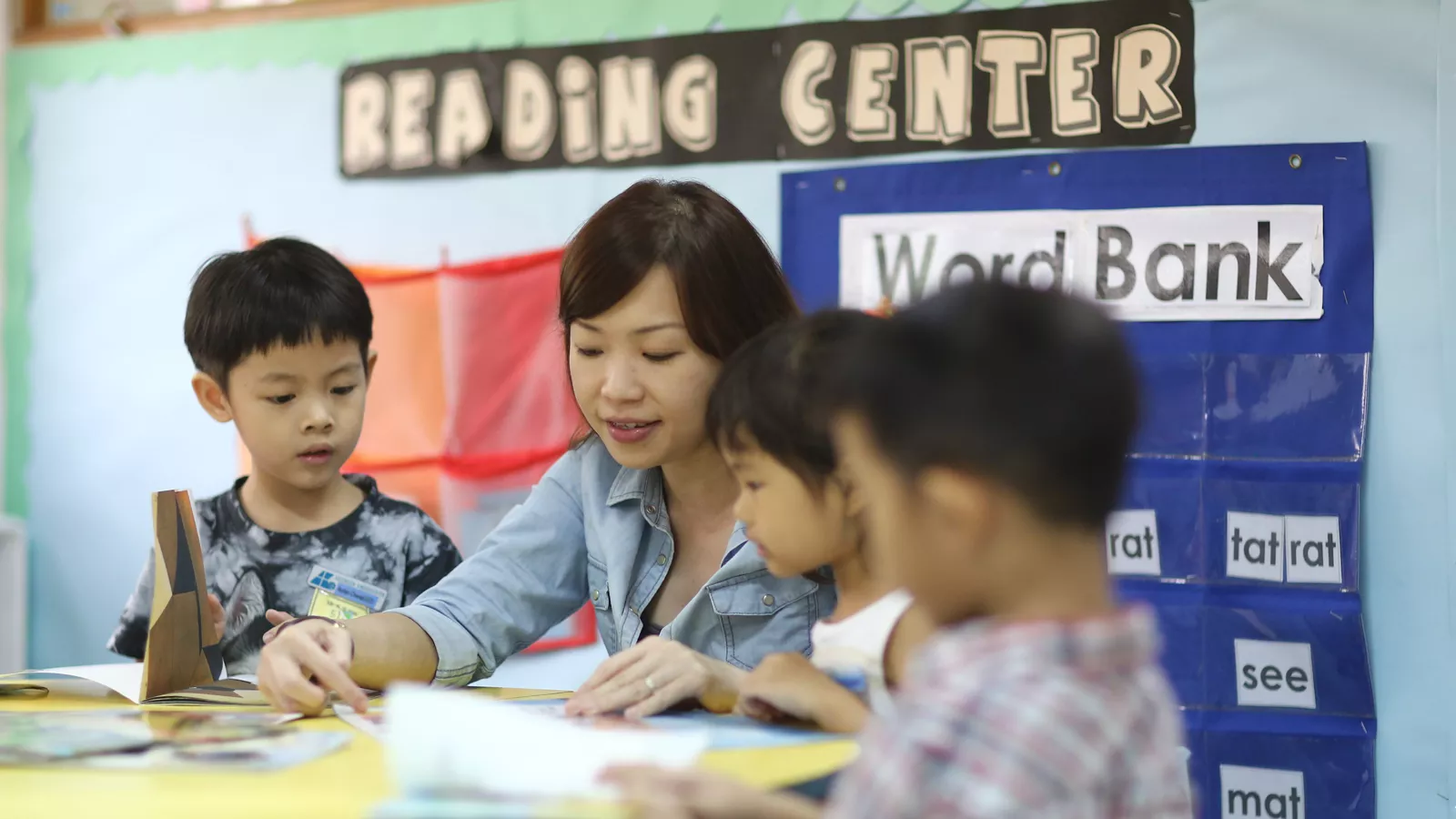Helping children overcome struggles in language, literacy, fine motor or social skills is often seen as the responsibility of experts. Not true, says Ms Nor Jannah Binte Muhammad Sabri, a Senior Learning Support Educator (LSEd) at SPD.
“Some parents think that only specialists can tackle a child’s learning difficulties, while some educators believe they are not qualified enough to do so,” says the 2023 ECDA Outstanding Early Intervention Professional Award recipient. “But the early intervention (EI) journey is a partnership where each of us plays a pivotal role.”
Ms Jannah identifies the three groups with whom she works most closely as an LSEd. Their support is key to better addressing the diverse needs of children and helping them achieve developmental milestones.
1EMPOWERING EDUCATORS
 Educators can work closely with LSEds like Ms Jannah (right) to develop and implement an Individualised Education Plan for each child.
Educators can work closely with LSEds like Ms Jannah (right) to develop and implement an Individualised Education Plan for each child.
For educators, the process starts with understanding and identifying a child’s learning and developmental needs. Ms Jannah conducts briefings on the Development Support and Learning Support (DS-LS) programme, designed for children requiring low levels of EI support. She guides educators in assessing the child’s needs and levels of support, and with the referral process to DS-LS. An Individualised Education Plan (IEP) is then developed to deliver targeted interventions.
During intervention sessions, Ms Jannah uses strategies such as building the child’s prior knowledge about a topic to improve reading comprehension. She also shares these strategies with the educator, who successfully applies them in her classroom.
2EMPOWERING PARENTS
 Parents can get involved in the EI journey in various ways, such as discussing their child’s progress with LSEds and attending intervention sessions.
Parents can get involved in the EI journey in various ways, such as discussing their child’s progress with LSEds and attending intervention sessions.
“Understanding family dynamics helps us identify how each family member can contribute to the child’s learning,” explains Ms Jannah. “Together, we can explore their roles at home and the kinds of support they need.”
To build trust with families, Ms Jannah seeks their views and input in setting IEP goals for the child. She also regularly updates parents, invites them to observe intervention sessions, and checks how they are coping at home.
Ms Jannah sees herself as a guide and facilitator. “LSEds work together with parents and educators to ensure consistent strategies are used both at home and in preschool, which reinforces the skills learned by the child.”
3TAPPING ON COMMUNITY PARTNERS
When parents or educators need additional support, Ms Jannah helps connect them with community resources or social service agencies. She also collaborates directly with these organisations, such as discussing specific cases to fine-tune intervention strategies tailored to the child’s needs.
One such partner is KK Women’s and Children’s Hospital (KKH), which offers specialist EI services. Dr Sylvia Choo, Senior Consultant at KKH’s Department of Child Development, notes that LSEds like Ms Jannah serve as a bridge for preschool educators and parents.
“Close communication with healthcare providers, allied health professionals (e.g. therapists, psychologists) and medical social workers helps LSEds to better understand a child’s strengths and challenges,” says Dr Choo. “Holistic, inclusive care can then be provided to the child in the preschool setting.”







